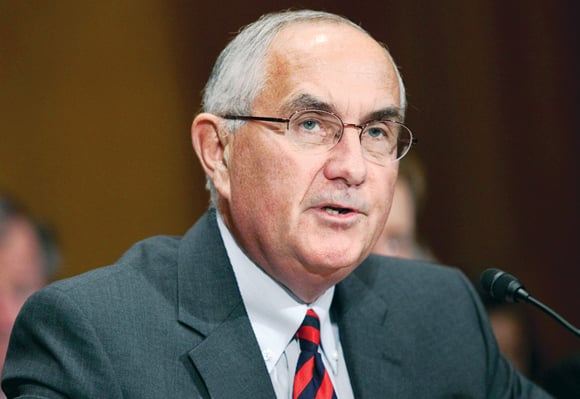Senior adviser to Mary Schapiro touted as next head of the Division of Investment Management
The SEC is expected to name an interim replacement for Andrew J. “Buddy” Donohue, who is leaving his post as the head of the Division of Investment Management next week. Observers said that the most likely candidate for the role is Jennifer McHugh, a senior adviser to Mary Schapiro, chairman of the Securities and Exchange Commission.
Mr. Donohue, who has been with the commission for four years, announced his departure in August. His last day is Nov. 19, said John Heine, a spokesman. Mr. Heine declined to comment on who will be replacing Mr. Donohue.
Given that the SEC hasn't named a successor to Mr. Donohue — and considering everything the agency has on its plate with Dodd-Frank — it seems likely that the agency will name an interim head, said Joel Goldberg, a partner at Stroock & Stroock & Lavan LLP. Mr. Goldberg led the Division of Investment Management in the 1980s.
And Ms. McHugh's name is one that has been floated as the most likely candidate, according to people who are familiar with the workings of the agency. “That's certainly one of the names that is out there,” said Robert Kurucza, a partner at Goodwin Procter LLP and a former associate director of the division.
Ms. McHugh is a logical choice for an interim replacement, given that she is Ms. Shapiro's “go-to person” on a variety of issues, said one SEC watcher. “She has a record of getting stuff done.”
For example, Ms. McHugh has been in charge of the SEC's study of fiduciary duty, which was required by Dodd-Frank.
Ms. McHugh will have a lot of work ahead of her if she replaces Mr. Donohue. During his tenure, Mr. Donohue helped shape many proposals aimed at regulating the mutual fund industry. Most recently, he helped to pioneer a proposed rule released in July that would cap 12(b)-1 fees — a proposal that has been met with fierce opposition by the industry.
Under the proposal, which closed for comment Nov. 5, firms could charge a “marketing and service fee” of up to 0.25%. Anything above that amount would be deemed an “ongoing sales charge,” which would be limited to the highest fee charged by the fund for shares without marketing and service fees.







